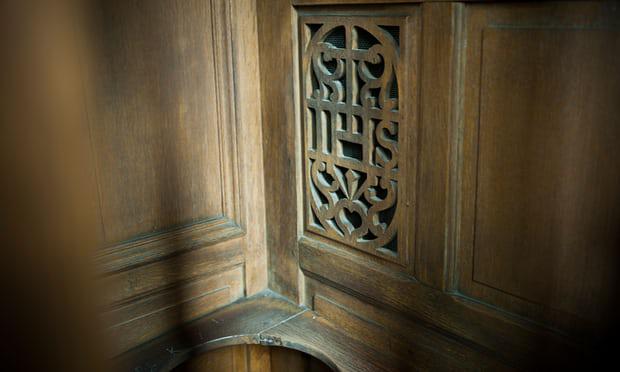|
Clergy who fail to report child abuse heard in confession should be charged – royal commission
By Melissa Davey
Clergy who refuse to report child sexual abuse because the information was received during a religious confession could face charges if recommendations for new institutional criminal offences are accepted. The child abuse royal commission wants failure to report child sex abuse in institutions to be a criminal offence, extending to information given in religious confessions. People in institutions who know, suspect or should have suspected a child is being sexually abused and fail to act should face criminal charges, it says in its criminal justice report released on Monday. Stephen Woods – who was abused by the notorious pedophile priest Gerald Francis Ridsdale and the convicted pedophile brother Robert Charles Best while a student at St Alipius primary school in Ballarat– praised the commission for the recommendation but said it was overdue. “Victims have always been advocating that there is no logical reason, none whatsoever, that child abuse should ever be hidden,” he told Guardian Australia. “It is the most heinous of criminal activity you can imagine, and for a religion to declare that it’s their right to hide it is a most disgusting argument. It’s immoral.” In their report, the commissioners said they understood the significance of religious confession and the inviolability of the confessional seal to people of some faiths, particularly the Catholic faith. “However, we heard evidence of a number of instances where disclosures of child sexual abuse were made in religious confession, by both victims and perpetrators,” the report said. “We are satisfied that confession is a forum where Catholic children have disclosed their sexual abuse and where clergy have disclosed their abusive behaviour in order to deal with their own guilt.” There was significant risk that perpetrators may continue with their offending if they were not reported to police, the royal commission said. Clergy who received information during religious confession that an adult associated with the institution is sexually abusing or had sexually abused a child should get no exemption or privilege from the failure to report the offence, it concluded. As part of 85 recommendations for reform of the criminal justice system, the commission also wants the current law changed to facilitate more admissibility and cross-admissibility of tendency and coincidence evidence and more joint trials in child abuse matters. The commissioners also recommended expanding laws – which differ between states and territories – around mandatory reporting of child sexual abuse or suspected abuse. They want those who should have known about the abuse to be held criminally accountable, rather than only those who knew or suspected abuse was occurring but did not go to authorities. “While the existing New South Wales and Victorian offences require knowledge or belief that abuse has been committed, we have recommended that the failure to report offence should apply if a relevant person at the institution knows, suspects or should have suspected that a child is being or has been sexually abused,” the report said. “In line with the standard of criminal negligence, the offence would be committed on the basis that the person should have suspected only where there is a great falling short of what would be expected of a reasonable person.” The chief executive of Care Leavers Australia Network, Leonie Sheedy, whose organisation represents children who were victims of historical child sexual abuse in out-of-home care, said religion should never take precedence over the right of a child to be safe. For people who were in state care and who are removed from their parents and placed in the churches and charities and orphanages, the heads of those organisations had a duty of care to make sure children don’t suffer further, she said. “They should face criminal charges. These organisations get paid to look after kids. The heads of organisations must be vigilant at all times. children need to be protected - they’re Australia’s greatest asset.” The commission recommended the offence apply to to any adult who owns or manages or who is a staff member or volunteer of a relevant institution, or who otherwise requires a Working with Children Check clearance for their role – but not to individual foster carers or kinship carers
|
.
Any original material on these pages is copyright © BishopAccountability.org 2004. Reproduce freely with attribution.
